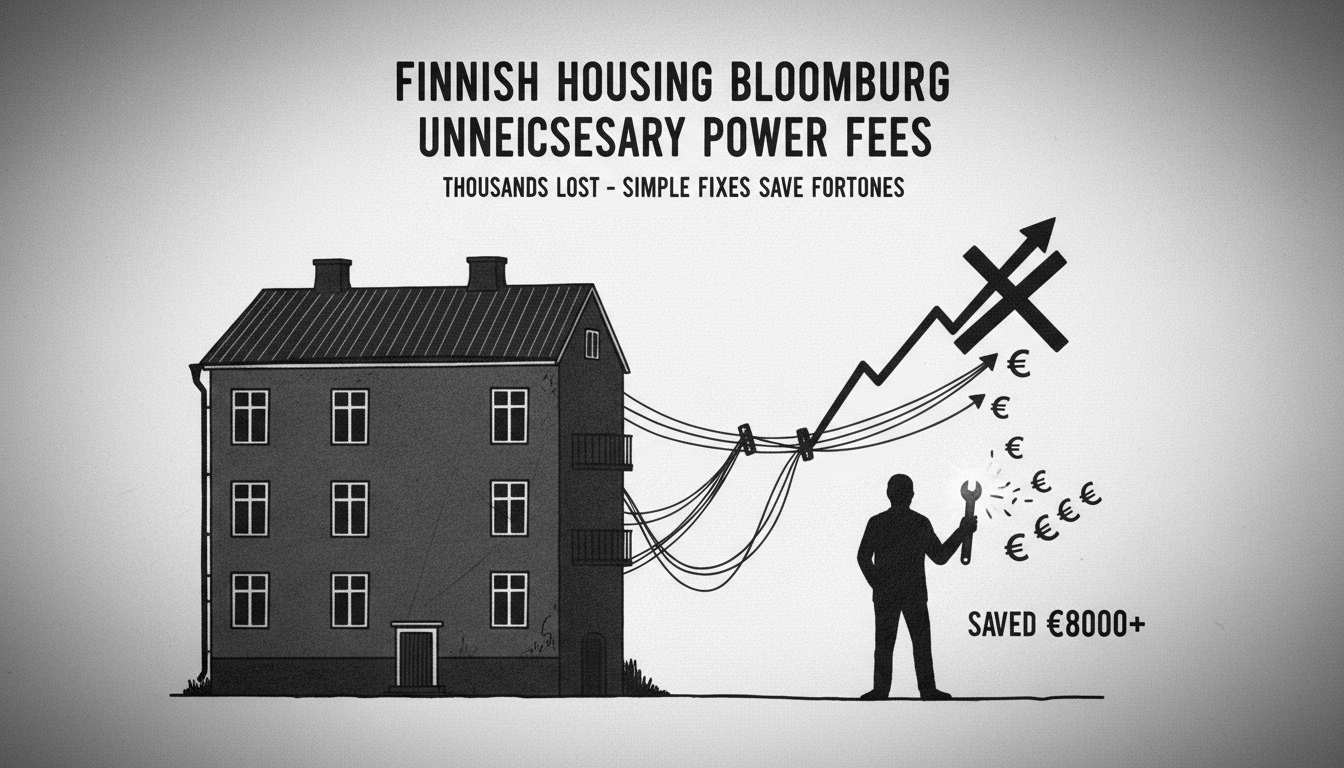A Finnish property manager discovered her housing association had been paying thousands in unnecessary electricity fees. Jonna Kärki noticed something unusual in the building's electricity bill. The basic fee was clearly higher than in other similar properties.
Many housing associations pay power fees without actually needing them. These fees are part of electricity transmission pricing designed to balance consumption peaks. The charges apply when a property requires substantial electrical power simultaneously.
Power fees often become payable when the meter's main fuse exceeds 3 × 63 amperes. This happens even when the property's electricity consumption remains relatively low.
Kärki investigated why her housing association had power fees included in their electricity transmission. She used the network service portal to verify the building didn't have such high consumption. The association then requested an electrician to change the fuse size at the distribution center. They also switched the electricity contract type.
The property manager calculated the housing association had paid tens of thousands of euros in unnecessary power fees over the years. The modification work cost only 300 euros. These changes saved the association approximately 8,300 euros over four years.
Typically, such modification work costs 600-800 euros. The investment usually pays for itself quickly. Checking your own housing association's situation is straightforward. Simply look at the electricity bill to see which transmission tariff applies. If the bill mentions 'power transmission,' the contract includes power fees.
After this, the housing association's peak power usage can be checked through the electricity network company's portal. If hourly consumption stays clearly below 40 kWh, the association likely pays power fees unnecessarily. In such cases, you can ask an electrical contractor to check if the fuse size can be reduced. They can also help switch the contract to general transmission.
According to the Property Management Association's Pipe Renovation Barometer, more than one in three property managers oversee housing associations using power fees. In many cases, these fees have significantly increased total electricity costs, estimates Research Manager Olli Rekonen in the association's bulletin.
This situation highlights how Finnish housing associations frequently overlook basic cost-saving measures. The country's unique electricity market structure creates these hidden fees that drain resources from property maintenance and improvements. Many associations operate with outdated contracts established during construction, never revisiting whether they still match actual consumption patterns.
International residents in Finland should pay particular attention to this issue when moving into housing associations. The Finnish system differs from many other countries, with housing associations managing shared expenses differently than individual homeowners might expect. Understanding these electricity contract details can lead to substantial savings for all residents.
The case demonstrates how routine financial reviews of housing association expenses can uncover significant savings opportunities. Property managers and board members should regularly audit all utility contracts to ensure they align with current consumption patterns and market offerings.

